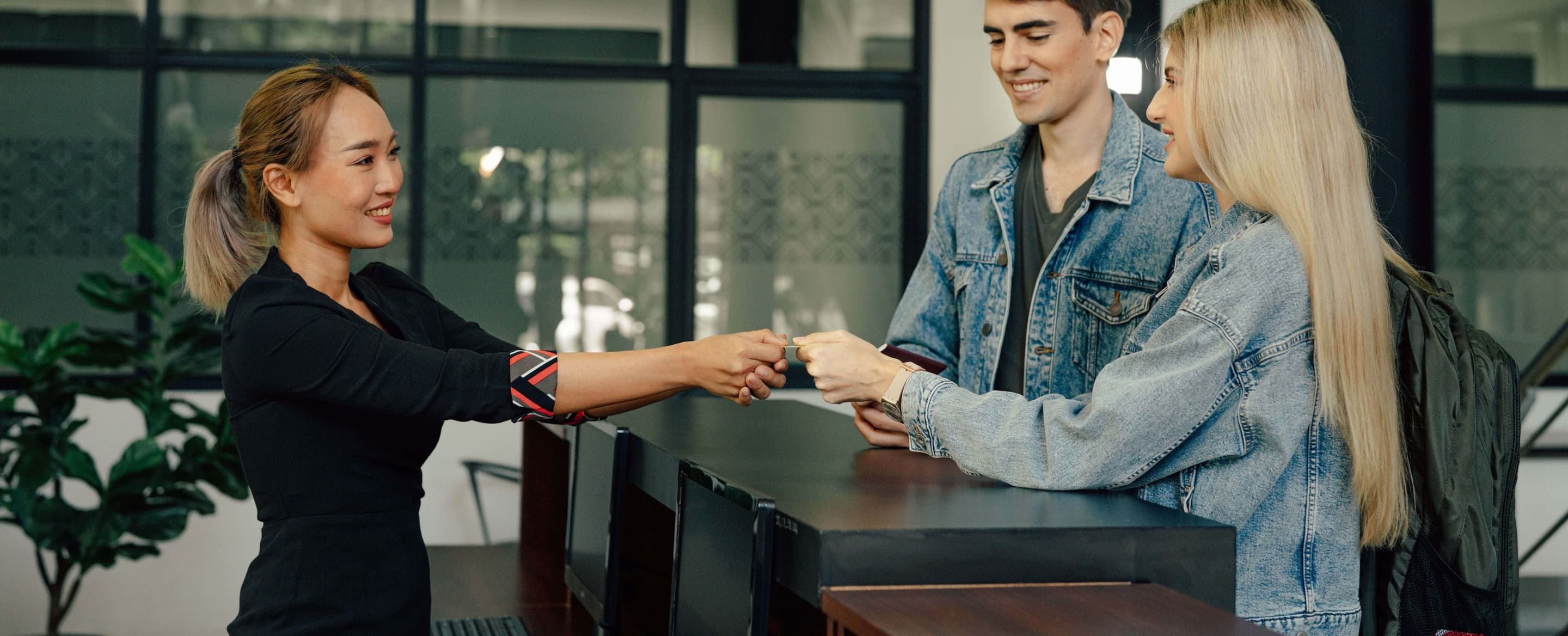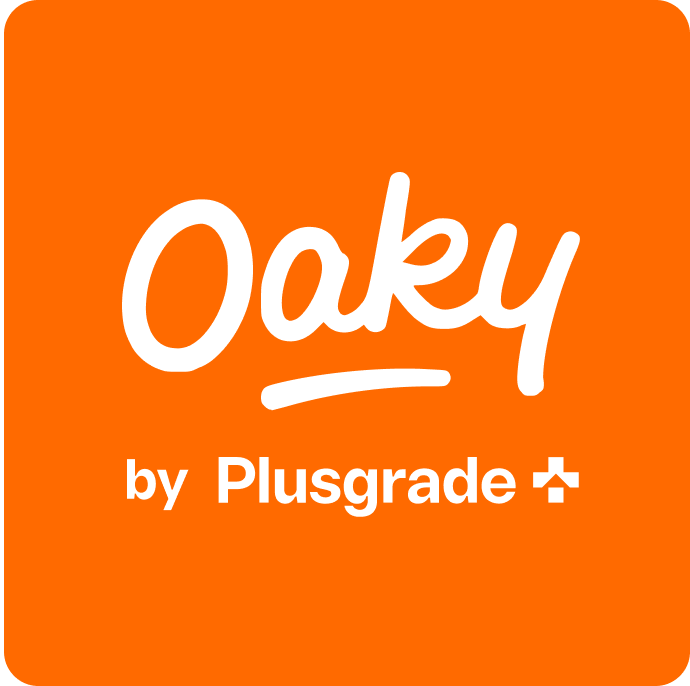How to identify upselling opportunities at the front desk
Pablo Torres and Oaky
•

Upselling at the front desk is all about recognizing the right opportunities in the moment. Whether you’re working in a city hotel or a luxury resort, the key to successful upselling is gathering the right information about your guests. There are three main ways to do this:
Watch the video from Hospitality Consultant and Oaky's Front Desk Upselling Coach Pablo Torres to discover how to spot upselling opportunities at check-in and identify the best-fit guests.

1. Visual cues: Observing your guest before check-in
Even before you exchange words with a guest, you can pick up valuable insights based on their appearance, behavior, and body language.
Clothing & Accessories – Are they dressed casually, formally, or stylishly? Do they have high-end luggage or unusual accessories?
Arrival Behavior – Are they moving confidently toward the reception desk (suggesting they’ve stayed before), or are they looking around, unsure of where to go (a new guest)?
Luggage Size – A large number of bags may indicate a longer stay, while a light traveler might be here for a short visit.
Mood & Energy – Are they rushed or relaxed? Are they excited, tired, or irritated? These factors can determine whether they’re open to a conversation about an upsell.
By quickly assessing these visual cues, front desk staff can determine which guests might be more receptive to a premium upgrade or added service.
2. Reservation data: Leverage data to uncover the most suitable upsells
Once a guest reaches the desk, their reservation details provide another layer of insight. In just a few seconds, front desk agents can review:
Length of stay – Guests staying longer may be more interested in extra comforts, such as a suite or access to premium amenities. However, in resorts, shorter-stay guests often have a larger discretionary budget for upgrades.
Booking source & rate – Did they book directly or through an OTA? Did they pay a premium price or get a deal? Don't assume a low rate means they won’t spend—some guests book the cheapest room but are willing to splurge on extras.
Purpose of stay – Are they here for business or leisure? A business traveler might appreciate executive lounge access, while a couple on vacation might be interested in a room with a view or spa treatments.
Group or individual booking – If they’re part of a large group or corporate stay, upselling may not be possible.
Not every arrival presents an upselling opportunity. Business travelers in a rush, tour groups with pre-arranged stays, or guests who are visibly stressed may not be open to an upgrade. By filtering potential upsell candidates, front desk agents can focus their efforts where it counts.
Having access to rich guest data in your PMS is only one side of the coin. The other is having real-time access to crucial hotel data—like room and service availability, pricing, and detailed descriptions.
With hotel upsell software like Oaky, front desk agents no longer have to juggle multiple systems to find the information they need for a successful upsell. Oaky’s Front Desk Upselling provides instant access to all essential data while offering smart, personalized upsell prompts based on availability and guest preferences.
Plus, agents can see their potential commission or reward points for each successful upsell, keeping them motivated and encouraging them to sell more, driving ancillary revenue. For example, by enabling an incentive program via Oaky, a motivated team at Clarion Hotel Sign achieved a +381% increase in upsell revenue in just a few months of using Oaky’s Front Desk Upselling.
Discover how Clarion Hotel Sign achieved +381% in upsell revenue
3. Conversational cues: Asking the right questions
A short but meaningful conversation can reveal key details that help personalize an upsell offer. Instead of generic, closed-ended questions, try open-ended ones:
Instead of "How are you?" → "Where are you traveling from today?"
This provides insight into their journey, potential fatigue, and even a chance to make a personal connection.Instead of "Are you here for business or leisure?" → "What brings you to the city this time?"
This encourages them to share more details, helping you gauge their needs and interests.Instead of "Do you have any plans?" → "Would you have any spare time in the evening?"
This can reveal whether they’d be interested in experiences like dining, spa treatments, or local excursions.
By listening carefully and responding naturally, you can determine whether an upsell makes sense for them.
Final thoughts: The key to successful upselling
Upselling isn’t just about increasing revenue—it’s about enhancing the guest experience. When done right, guests leave more satisfied, having enjoyed a better stay that they might not have considered otherwise.
By combining visual cues, reservation data, and conversation insights, front desk staff can identify the right opportunities and make offers that feel personalized rather than pushy. The best upsells happen when guests walk away thinking, “That was totally worth it.”
Would you like additional insights on how to kick off a consistent hotel upselling program and start generating more revenue? Explore our comprehensive guide to maximizing front desk profitability through upselling.

